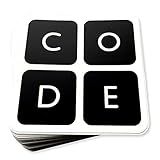Best CodeIgniter Library Integration Techniques to Buy in October 2025
To integrate third-party libraries in CodeIgniter, follow the steps below:
- Download or obtain the third-party library that you want to integrate with CodeIgniter. Ensure that the library is compatible with CodeIgniter or can be easily modified to work with it.
- Copy the library files into the appropriate location within your CodeIgniter project. A common practice is to store third-party libraries in the "application/libraries" directory.
- In CodeIgniter, libraries are typically represented as classes. Therefore, create a new PHP file within the "application/libraries" directory and give it a suitable name, such as "MyLibrary.php" (replace "MyLibrary" with the actual library name). Make sure to adhere to CodeIgniter's naming convention for libraries (e.g., MyClass_library.php).
- Open the newly created library file using a text editor. Begin by defining the class and extending the CodeIgniter library base class as follows:
- Within the library file, write your library's functionality by creating methods specific to your requirements. These methods can be used to access the functionality provided by the third-party library.
- If the third-party library requires additional configuration, you can integrate that within the library's constructor or using separate configuration files. Make sure to follow the guidelines provided by the third-party library's documentation.
- Now you can start using the third-party library within your CodeIgniter project. To load the library, you have two options: Autoload the library in CodeIgniter's configuration files by opening "application/config/autoload.php" and adding the library name to the $autoload['libraries'] array. For example: $autoload['libraries'] = array('MyLibrary'); Load the library on-demand in specific controller methods by using the following code: $this->load->library('MyLibrary');
- Once the library is loaded, you can access its methods and utilize its functionality throughout your CodeIgniter application.
What is the purpose of integrating third-party libraries in CodeIgniter?
The purpose of integrating third-party libraries in CodeIgniter is to enhance the functionality and capabilities of the framework. CodeIgniter is a lightweight PHP framework that provides a basic set of features and functionalities. However, by integrating third-party libraries, developers can easily extend these functionalities and add additional features to their CodeIgniter applications without reinventing the wheel.
Third-party libraries often provide complex functionality or specialized tools that can simplify development tasks, such as image manipulation, form validation, authentication, caching, database abstraction, and more. By integrating these libraries, developers can save time and effort, as they can leverage the pre-built functionality and focus more on the core logic of their application.
Integrating third-party libraries also allows developers to benefit from the expertise and contribution of the wider community. These libraries are often developed and maintained by experienced developers who have specialized knowledge in certain areas. By using these libraries, developers can tap into this expertise, leverage tested and reliable code, and benefit from updates and enhancements made by the library's maintainers.
Overall, integrating third-party libraries in CodeIgniter helps to expand the capabilities of the framework, simplify development tasks, and improve efficiency and productivity for developers.
What is the best way to handle conflicts between third-party libraries and CodeIgniter core files?
When dealing with conflicts between third-party libraries and CodeIgniter core files, there are several approaches you can take:
- Check for library compatibility: Before integrating any third-party library, check if it is compatible with the CodeIgniter version you are using. Most libraries provide information about their compatibility, so make sure to review their documentation and version requirements.
- Use CodeIgniter-compatible libraries: Look for libraries specifically designed for CodeIgniter. These libraries are built to work smoothly with CodeIgniter's architecture and might have fewer conflicts with the core files.
- Create a custom CodeIgniter library: If you encounter conflicts with a specific library, consider creating your own custom library that integrates the functionality you need. By doing so, you can ensure the code works seamlessly with CodeIgniter and avoid potential conflicts.
- Debug and troubleshoot conflicts: If you are experiencing conflicts between a library and CodeIgniter core files, carefully review the error messages or logs to identify the specific conflict points. Use tools like debugging or logging to pinpoint the issues and find potential solutions.
- Use namespace or class renaming: If there is a specific conflict between the names of classes or functions, you can attempt to rename them to avoid clashes. Use PHP namespaces to encapsulate the library code and avoid naming conflicts with CodeIgniter.
- Modify the third-party library: As a last resort, if none of the above options work, you can modify the third-party library directly to resolve conflicts. However, this should only be done with caution and extensive testing, as it can lead to maintenance and compatibility issues in the long run.
Remember to always keep your CodeIgniter installation and third-party libraries up-to-date to minimize conflicts. Additionally, thoroughly test any integration or modifications made to ensure proper functionality.
How to find suitable third-party libraries for CodeIgniter?
There are several ways to find suitable third-party libraries for CodeIgniter:
- CodeIgniter User Guide: The official CodeIgniter user guide provides a list of recommended third-party libraries. You can refer to the Official CodeIgniter User Guide at https://codeigniter.com/user_guide/
- CodeIgniter Forum: The CodeIgniter forum is a great place to find recommendations and discussions on third-party libraries. You can visit the CodeIgniter forum at https://forum.codeigniter.com/
- GitHub: Many developers share their CodeIgniter libraries on GitHub. You can search for CodeIgniter libraries on GitHub using the following query: "topic:codeigniter library". You can also explore popular CodeIgniter repositories to find libraries that are frequently used and maintained.
- Packagist: If you are using Composer to manage your CodeIgniter project, you can search for CodeIgniter packages on Packagist (https://packagist.org/). It is a repository for PHP packages, including CodeIgniter libraries.
- Google Search: You can perform a Google search using keywords related to the functionality you require. For example, if you need a library for image manipulation in CodeIgniter, you can search for "CodeIgniter image manipulation library". This can help you find libraries that match your specific needs.
Once you find a potential library, make sure to check their documentation, compatibility with your CodeIgniter version, user reviews, and recent activity to ensure that it is suitable for your project.
How to remove a third-party library from CodeIgniter?
To remove a third-party library from CodeIgniter, follow these steps:
- Identify the third-party library you want to remove. Locate the library files in your CodeIgniter project's folder structure.
- Remove the library's files: Delete the files and folders associated with the library from your project. This includes any library files located in the application/libraries directory or any additional files stored in other directories.
- Remove the library references: Open your CodeIgniter project's codebase and search for any references to the third-party library. This includes any autoload configurations, configurations in the application/config directory, or references in your application's code files.
- Cleanup dependencies: If the third-party library had any dependencies, check if any other parts of your project rely on those dependencies. If they are no longer needed, remove them as well.
- Test your application: Run your CodeIgniter application and make sure it is functioning correctly without any errors related to the removed library. Fix any issues that arise as a result of the removal.
By following these steps, you can effectively remove a third-party library from your CodeIgniter project.
What are some resources to find documentation for third-party libraries in CodeIgniter?
Here are some resources where you can find documentation for third-party libraries in CodeIgniter:
- CodeIgniter User Guide: The official documentation of CodeIgniter provides information on using third-party libraries. It can be found at: https://codeigniter.com/user_guide/
- Packagist: Packagist is the primary package repository for PHP. You can search for CodeIgniter libraries on Packagist and find links to their documentation. Visit: https://packagist.org/?query=codeigniter
- GitHub repository: Many third-party libraries in CodeIgniter are hosted on GitHub. You can find their repositories and documentation on the respective GitHub pages.
- CodeIgniter Forums: The official CodeIgniter forums have a dedicated section where users share and discuss third-party libraries. You can often find links to the library's documentation or further details from the forum threads. Visit: https://forum.codeigniter.com/forum-23.html
- Online tutorials and blogs: Various online tutorials and blogs provide step-by-step guides on working with specific third-party libraries in CodeIgniter. A simple search using the library name along with "CodeIgniter" can often lead you to such resources.
Remember to verify the credibility and relevance of the documentation before relying on it.



